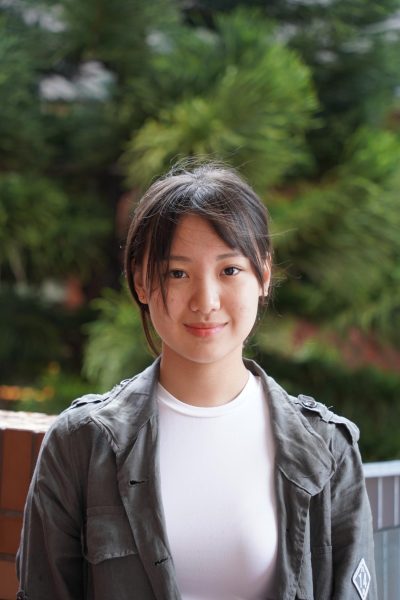Mr. Hua
There’s no career path that screams “Asian” as much as engineering does. I can say that because I’m Asian. Engineering is a very popular field, with many different areas within it. It is very popular among the Asian community specifically because of the belief that some of the smartest students study engineering, since the education required to become an engineer is known to be rigorous. And, of course, because it pays well.
Mr. Peter Hua, who is currently an Upper School mathematics teacher at Taipei American School (TAS), used to be an engineer in the oil and gas industry. He says that he decided to pursue this career because he’s always been mathematically inclined and because he was influenced by the many engineers in his inner circle, including his dad and elder brother.
When asked about his experiences as an engineer, Mr. Hua says that his experience was “somewhat within expectations,” but also emphasizes that working in the oil and gas industry made his experiences unique. He ended up working in a cross between engineering and technical sales. “I actually didn’t use that much math at all in my entire experience working as an engineer. A lot of it [was] actually very simplistic math” says Mr. Hua. However, as expected, his stress levels were still quite high; this wasn’t exactly due to the engineering aspect, but because he had to interact with many people.
Furthermore, although most engineers end up doing standard desk work, traveling was a large part of Mr. Hua’s career. He says this was very enjoyable and provided him with experiences he wouldn’t have had otherwise, but he also mentions that it took away from his personal life. “I was just too burnt out from traveling. More in terms of personal life, the loss of quality there in terms of friendships and everything,” says Mr. Hua. This was the reason he ultimately quit.
Although Mr. Hua says that engineering can differ greatly from field to field, he also says that if you’re mathematically inclined, then engineering could be a great career path.
Dr. Lipsett
What’s one of the top careers that parents here at Taipei American School (TAS) always want their kids to pursue? Law, obviously. Law is a well-respected and well-known field, and lawyers are esteemed individuals who work with clients to give advice on and help sort out legal issues. This field and career path is popular because it’s seen as honorable, and due to its high pay.
Dr. Owen Lipsett is an Upper School English teacher at TAS who used to practice bank regulatory law at a major global firm in New York City. Bank regulatory law is a type of law that deals with rules and contracts between banks, customers, and other possible parties. He says that he was interested in regulatory law because of how it “gets to the heart of how societies organize themselves and relates to public policy.”
Although Dr. Lipsett says that he’s glad he studied law, law was not his end goal. He was planning to save money and then start teaching. Dr. Lipsett adds that, although he is glad he studied law and enjoyed the work itself, he did not approve of the dynamics within the lawyer community. “I enjoyed the work itself, but not the workflow or the way many people in the firm behaved, especially toward young lawyers,” said Dr. Lipsett. “As anyone who’s been in my class knows, I value respect and the kindness that go with it highly, and they were not very present.” He also mentioned that law is “the best training in writing,” especially for the persuasive kind.
Dr. Lipsett says that whether law is a good career path or not varies depending on personal interests. But some interesting information he provides is that “you really can study anything in undergrad[uate school] and then go to law school. In fact, STEM knowledge will open doors for you in terms of patent law, and language proficiency will open up new opportunities.” Therefore, it seems that law has its positives and negatives, but is a quite flexible career path that may suit a variety of different people due to its many fields.

![[PHOTO COUTESY OF MR. PETER HUA & MR. JIM KLAR]](https://blueandgoldonline.org/wp-content/uploads/2025/01/Untitled-design-1-1200x604.jpeg)
![Helen Zia talks to students in the auditorium at Flex. [ANNABELLE HSU/THE BLUE&GOLD]](https://blueandgoldonline.org/wp-content/uploads/2025/09/helen-zia-1200x800.jpg)
![[PHOTOS COURTESY OF MS. VINOD]](https://blueandgoldonline.org/wp-content/uploads/2025/09/Untitled-design-1200x675.png)
![Mr. Sean Patella-Buckley [PHOTO COURTESY OF MR. PATELLA-BUCKELY], Mr. Yoonsoo Kang [PHOTO COURTESY OF MR. KANG], Ms. Mikayla Patella-Buckley [PHOTO COURTESY OF MS. PATELLA-BUCKLEY], Ms. Lien Martens [PHOTO COURTESY OF MS. MARTENS],](https://blueandgoldonline.org/wp-content/uploads/2025/09/teachers-1200x675.png)
![Sofia Valadao [Erin Wu/The Blue&Gold]
Erin Wu [Annabelle Hsu/The Blue&Gold]](https://blueandgoldonline.org/wp-content/uploads/2025/05/erin-sofia-pic.png)
![Dr. Simeondis, Mr. Anderson. [Annabelle Hsu/The Blue&Gold]](https://blueandgoldonline.org/wp-content/uploads/2025/05/teachers-1200x675.jpg)
![[PHOTO COURTESY OF UNCULTURED, JUNIPER AND CO.]](https://blueandgoldonline.org/wp-content/uploads/2025/05/student-businesses-1200x675.png)
